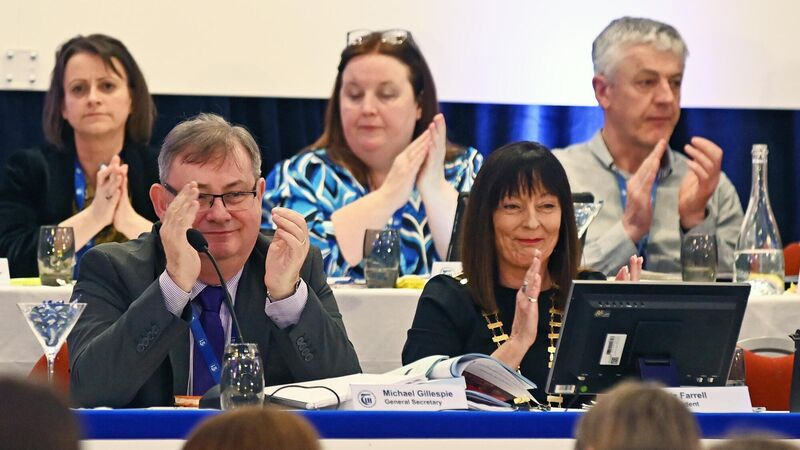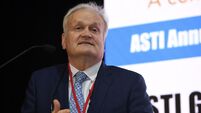Reforming teacher training could see an extra 2,400 teachers in the system within a year

Liz Farrell, president and Michael Gillespie, general secretary at the TUI conference at the Clayton Silversprings hotel, Cork. Picture: Eddie O'Hare
More than 2,400 teachers could be brought into the education system in a year if the Government reformed the way they are trained, according to the Teachers' Union of Ireland (TUI).
The influx could happen if the current two-year Postgraduate Masters in Education (PME) qualification course for secondary teaching was cut again to one year.













